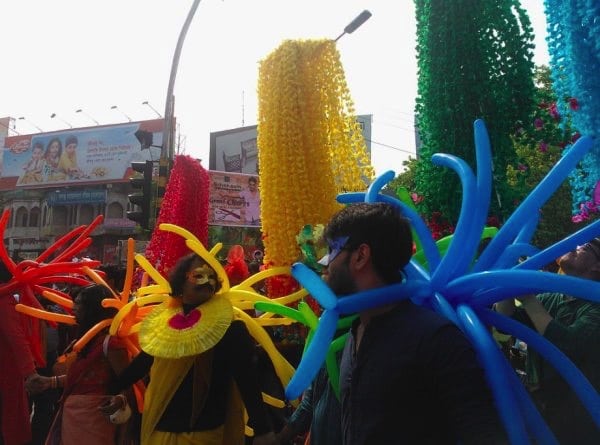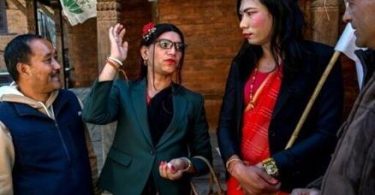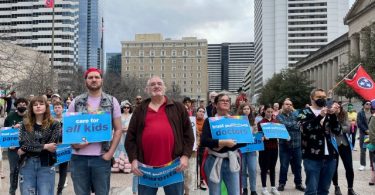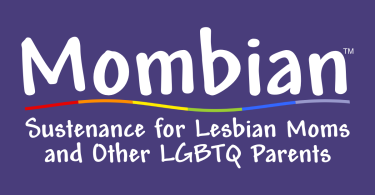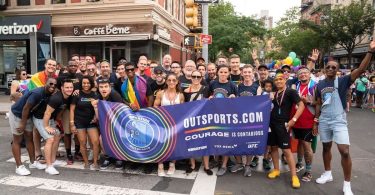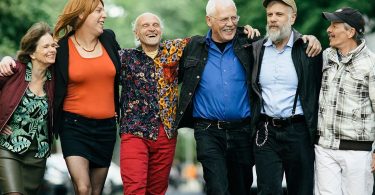An LGBT rights rally in Dhaka, Bangladesh. A new rule from the State Department requires that all foreign nationals working in the United States for international organizations, like the UN, to be married in order for their same-sex spouses to receive a visa. CREATIVE COMMONS
The recent decision by the United States State Department requiring all foreign nationals working in America for international organizations, including the United Nations, to be married in order for their same-sex spouses to receive a derivative visa, called the G-4, increases the challenges faced by LGBTIQ+ couples in same-sex relationships. This much is clear.
Under its previous rules, when it came to same-sex couples, the State Department recognized couples in domestic partnerships and in marriages. Now only the latter will be recognized.
The change is being justified by the desire of the US to bring parity to how opposite-sex relationships and same-sex relationships are recognized. Since 2009, for opposite-sex couples, the State Department has recognized only those in marriages.
The announcement, released by the UN on Sept. 28 to its staff members, says that currently accredited same-sex domestic partners of UN officials who wish to maintain their G-4 visa must be ready to submit proof of marriage by Dec. 31, 2018. After that, they will be expected to leave the US within 30 days if they can’t show proof of marriage, unless they can independently secure a visa.
This new step from the State Department is not only another move that prioritizes marriages over all other forms of unions, but it does not address the fact that same-sex couples face genuine constraints preventing them from getting married — constraints not faced by opposite-sex couples.
Same-sex marriage, for example, is legal only in about 13 percent of the countries that are member states of the UN. For some couples, being in a same-sex marriage brings the risk of prosecution in their home countries. This is why many same-sex couples opt for domestic partnerships out of choice or out of necessity.
With the rule change by the State Department, all international organization employees assigned to the US who are in same-sex relationships must now find ways to get married to secure a residency visa for their same-sex partners.
It is true: not all LGBTIQ+ couples will be affected similarly. This is where the change of rule becomes complicated.
For those UN employees in same-sex domestic partnerships who are already in New York, they can choose to go to City Hall and get married, because such unions are legal in the state. But the couples that do so are aware that they may be criminally liable in their home countries.
For UN employees not yet in the US but assigned to a duty station like New York, they would have to either get married before coming here or get married at City Hall once here.
What worries me the most, however, are those couples who would have a hard time traveling to a country that performs same-sex marriages in order to meet the requirements for a G-4 visa: whether it is because they wouldn’t be able to secure tourist visas to such a country, or they wouldn’t be able to meet the requirements this country may have for foreign nationals wishing to get married there, or they wouldn’t have the money to travel to such a country.
I think, for example, of the couple in Nairobi who reached out to me for help, facing financial and visa constraints to travel to a country like South Africa to get married. I think of their deep desire to make their relationship legal, if only for their own personal satisfaction, since neither their sexual identity nor their relationship status could be widely shared.
After much effort, a domestic partnership using a mailed-in affidavit is what this couple managed to secure. Same-sex marriage was a dream that is still not possible for them in today’s world.
What also worries me is the message that the new US policy sends to those in same-sex relationships who already face serious constraints. UN employees in same-sex relationships are routinely unable to bring with them their same-sex partners to their postings because the host government, while happy to give residency visas to opposite-sex spouses, refuses to hand visas to same-sex spouses.
UN-GLOBE, an organization that advocates for equality and inclusiveness for LGBTIQ+ people working in the UN system, has helped countless numbers of couples in this situation.
These same-sex couples often desire postings in countries where same-sex domestic partnerships or marriages are legal, because after years of separation, they can finally live together again.
I wonder if New York will continue to be part of this list for UN employees or if it will join the longer list of duty stations where same-sex couples better be beware: you may face constraints.

